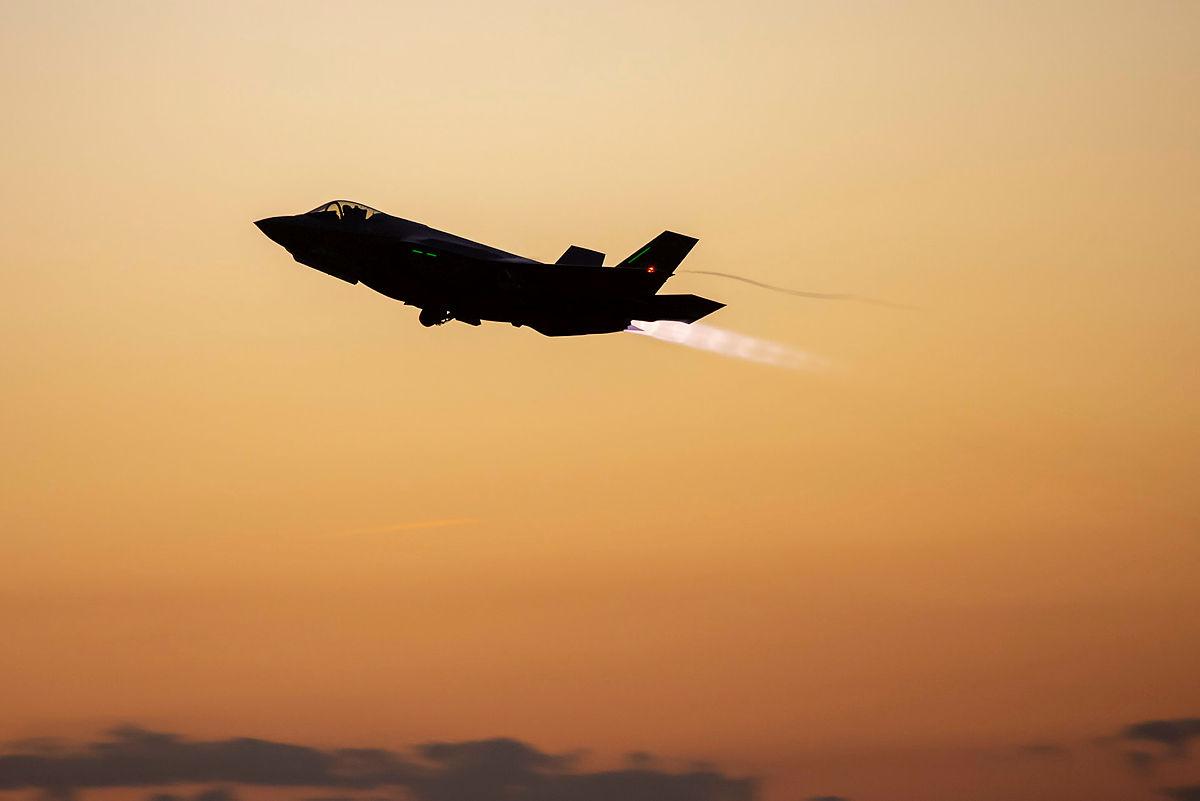
The United States has designed, built and flown a prototype of its latest jet fighter at startling speed. Using advanced manufacturing techniques, the US Air Force has taken its ‘next generation air dominance’, or NGAD, fighter from selection process to a virtual version and then to a flying prototype in just a year.
By comparison, it took about 20 years to develop the ‘fifth generation’ F-35 joint strike fighter from initial conceptual studies in 1996 to initial operating capability in 2016.
William Roper, the USAF’s acquisition leader, told Defense News that the full-scale NGAD prototype flew with mission systems on board.
The speed of development of the jet previously referred to as the ‘sixth generation’ fighter demonstrates just how fast the US can produce cutting-edge technology.
This new experimental ‘x plane’ is a technology demonstrator and is not yet an operational combat capability. Even so, Roper suggests that going down a digital development path would seem to allow the USAF to move ‘pretty fast’ into actual production.
Depending on the NGAD’s operational capabilities, and noting that it is not necessarily a single airframe, but more likely a ‘system of systems’, there could be a justification for moving quickly to develop the fighter sooner, even at the expense of future planned acquisition of the F-35.
Such a move would have implications for the Royal Australian Air Force. After all, why wait another 20 or 30 years to replace the RAAF’s F-35As with a future fighter, if the US might field a successor later this decade?
This is not a call to scrap the RAAF’s acquisition of the F-35A. We should still acquire our planned 72 jets, and these aircraft are likely to be the centrepiece of RAAF air combat capability through to 2040.
The RAAF should see digital development as a potential opportunity to ensure Australia is not left behind as the next generation of combat aircraft appear. Buying into such a program makes much more sense than remaining entrenched in a 20-year acquisition cycle based on a single airframe.
Defence needs to seize opportunities to try new approaches that enhance the RAAF’s technological advantage in strike and air combat capability, and which could also increase the number of air combat capabilities it has. The result should be a larger, more powerful and more technologically advanced RAAF able to hold a major power adversary at bay at much greater range and with greater speed and precision. Seizing these opportunities would deliver capability faster and with more rapid innovation and boost our ability to deter and to burden-share with key allies.
The digital development path offers us a fantastic opportunity to embrace rapid innovation cycles, and support a paradigm suggested by the proposed ‘digital century series’ that will likely be the basis for future USAF combat aircraft.
Instead of waiting 20 years for a new boutique fighter at great cost, digital development allows us to acquire a range of new platforms, perhaps in smaller numbers and with greater role specialisation, and then to evolve generations of those platforms over shorter periods. Rather than trying to sustain airframes for 20 to 30 years, we should accept that they will have shorter operational lives—perhaps 10 years—and they’ll be replaced by newer and more capable platforms sooner.
The same approach can be applied to other military capabilities. The application of digital development and ‘fourth industrial revolution’ technologies could allow Australia to dive more deeply into building sovereign defence capability in areas such as sensors, long-range missile systems, autonomous platforms, space assets and even naval vessels.
The digital development path also brings back the welcome prospect of increased competition in the aerospace sector. Digital development opens up military aerospace in the same way that the space sector is seeing start-ups and new actors like SpaceX and Blue Origin challenging the major companies. The technology is not nation-specific and, as Australia’s vibrant space sector is demonstrating, anyone can play. Is there any reason why a new approach to developing air combat capability would be confined to prime contractors or limited to US companies? Why shouldn’t Australian companies contribute new concepts and designs into the mix for Australia, the US and other partners?
Cost matters a great deal. The F-35 has been under development since 1996 at great expense, and such a long lead time demands a long service life to generate financial returns to the contractor through high sustainment costs. The RAAF’s F-35As are likely to be in service through to the 2040s and the 2020 force structure plan suggests an evaluation of its replacement won’t happen until the late 2030s.
The systems and software on the F-35 will be modernised over its life, but in 2040 we’ll still be flying the same aircraft that we are taking delivery of now. In contrast, the digital century model of rapid procurement and innovation involves a higher upfront development cost over a much shorter period, but far cheaper sustainment costs because we replace aircraft sooner. The money saved on sustainment would then be invested in the rapid advancement of new technologies.
The upside is much faster development of new operational capabilities rather than sinking ever growing amounts into sustaining older aircraft while adversaries find ways to erode our technological edge. We have a better chance of keeping pace in a technological race through rapid digital development rather than sticking with an outdated acquisition mindset.
The news that the USAF is now flying a demonstrator for NGAD—after only a year of development—shows there’s an alternative path to traditional acquisition of advanced capability that the RAAF should not discount.